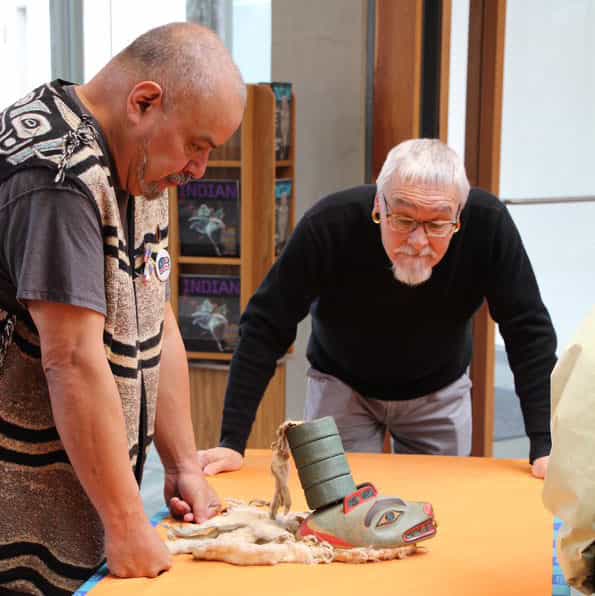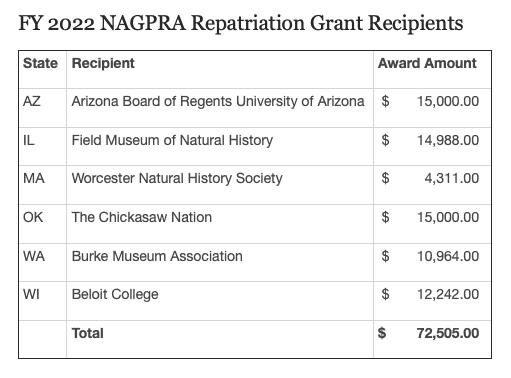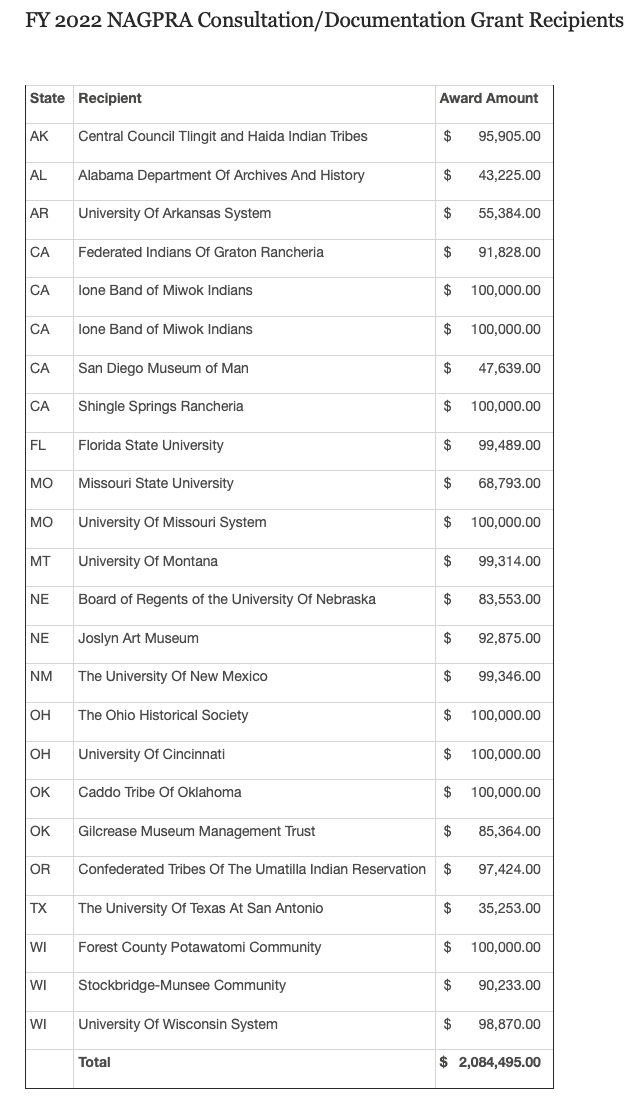
The National Park Service (NPS) last week announced $2.1 million in grants to nine Indian Tribes and 20 museums to assist in the consultation, documentation, and repatriation of ancestral remains and cultural items as part of the Native American Graves Protection and Repatriation Act (NAGPRA).
“Repatriation of human remains and sacred cultural objects to Native American Tribes, Alaska Natives, and the Native Hawaiian Community is fundamental to ensuring the preservation of Indigenous culture. These grants are just one way National Park Service is advancing a whole-of-government effort to strengthen Tribal sovereignty and repair our nation-to-nation relationships.”
– NPS Director Chuck Sams
Grants to Fund Repatriation
Six grants will fund the transportation and return of seven cultural items, more than 3,500 funerary objects, and human remains comprising 493 ancestors.

One recipient, Beloit College, Logan Museum of Anthropology in Beloit, Wisconsin, will repatriate the remains of five individuals and 26 burial objects removed from Ventura County, California. Sometime between 1875 and 1889, the ancestral remains were removed by an amateur archeologist who later sold the collection to the Logan Museum. Representatives from seven culturally affiliated Indian Tribes will travel from California to Wisconsin to pack and transport the ancestors and burial objects back to California. Just over 1,000 ancestors from Ventura County have been reported under NAGPRA by museums in California and across the country, including Maryland, Massachusetts, New York, South Carolina, and Wisconsin.
Grants to Fund Consultation and Documentation
Twenty-four consultation and documentation grants will fund museum and Tribal staff travel, consultation meetings, and research, all in support of the repatriation process.

The Central Council of Tlingit and Haida Indian Tribes in Alaska seeks to preserve their culture through the repatriation of items needed for ongoing ceremonial use by clans/tribes of the various Tlingit and Haida communities. Clan-owned items (objects of cultural patrimony) are owned by a group and could not have been alienated by any individual. These items are also considered sacred objects, as they have the voice of the ancestors and have been in use from time immemorial; they have a history to which no museum can relate and for which no museum can sing any related song. Through repatriation, items are being brought back to life, having lain dormant for decades or a century. The goal of this project is to repatriate cultural items that are culturally affiliated with the Tlingit & Haida, which are in the control or possession of the Hood Museum of Art at Dartmouth College, Rhode Island School of Design, and the Museum of Us in San Diego, California, so the objects can be welcomed back and reintegrated into ceremonial life.
About NAGPRA. Enacted in 1990, NAGPRA requires museums and Federal agencies to inventory and identify Native American human remains and cultural items in their collections, and to consult with Indian tribes and Native Hawaiian organizations regarding repatriation. Section 10 of the Act authorizes the Secretary of the Interior to award grants to assist in implementing provisions of the Act. The National NAGPRA Program is administered by the National Park Service.
More wasteful spending